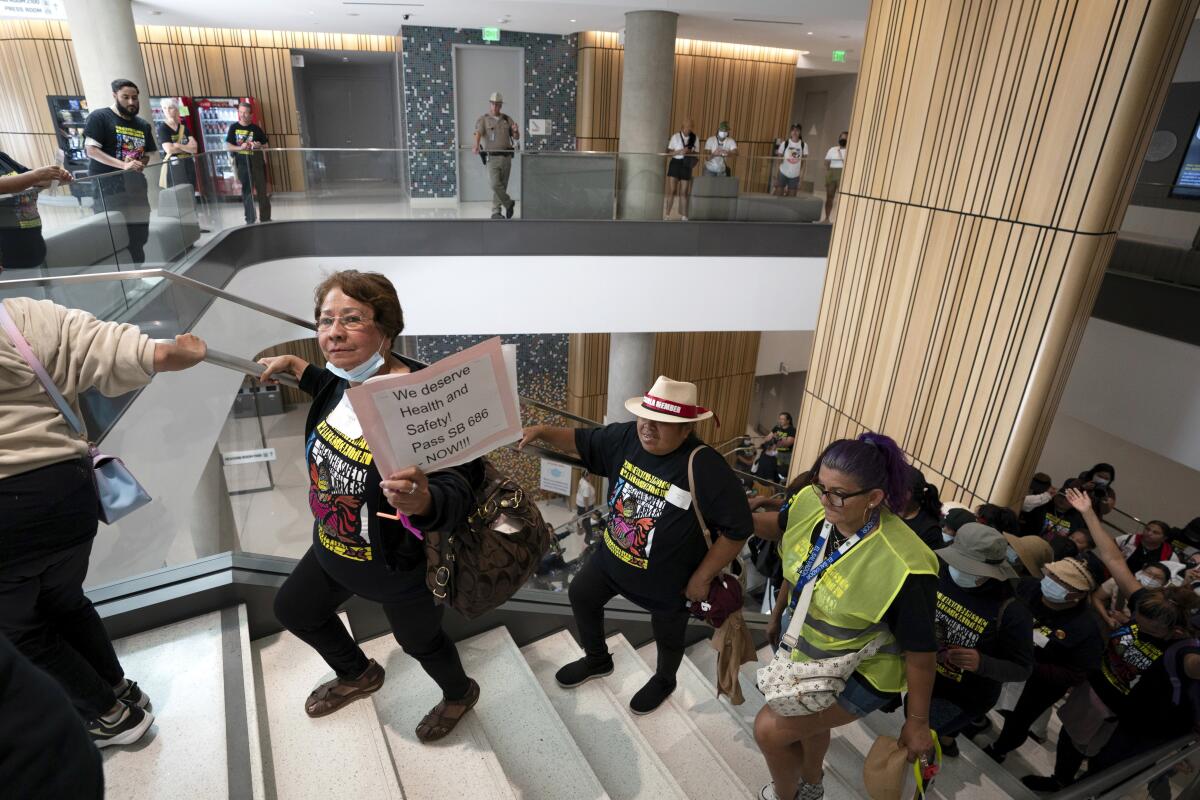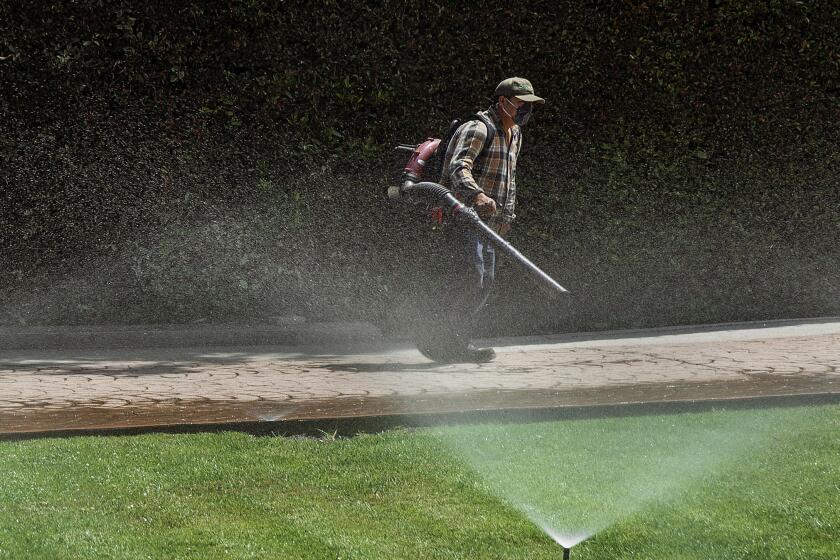Opinion: California’s domestic workers are being exploited. Gavin Newsom can do something about it

- Share via
Mirna Arana received the good news six years ago: She was pregnant and excited to be bringing a child into the world. But Arana, a domestic worker based in San Francisco, was also afraid to tell her employer at a local cleaning company about the pregnancy. She worked 15-hour days, endured constant wage theft and was threatened with termination whenever she raised concerns about her working conditions.
So when she was instructed to lift heavy boxes until 11 p.m. one night, she did as she was told. Later that night, bleeding and in pain, she realized she was losing her baby. The next time Arana became pregnant, she told her employer — and, much as she had feared the first time, was fired.
House cleaners, nannies, home care aides and others who work in private households put their own health and safety on the line every day. They’re uniquely vulnerable to exploitation because they typically work in isolation behind closed doors.
The failure of the Clinton-era corporate responsibility initiative helps explain why we’re seeing so much worker militancy and government activism today.
As the law currently stands, however, their employers have little responsibility to ensure that their workplaces are healthy and safe. Due to an exception in the California Occupational Safety and Health Act dating to 1973, employers of household staff are exempt from complying with standards that apply to other workers.
Domestic workers are taking on this injustice. Arana and other members of the California Domestic Workers Coalition are lobbying for both a federal Domestic Workers Bill of Rights, which would strengthen health and safety protections for domestic workers nationwide, and legislation to remove the domestic worker exception from California’s OSHA standards so that state regulations may be extended to this workforce. The latter measure, Senate Bill 686, was passed by the Legislature this month and is awaiting a decision by Gov. Gavin Newsom.
Newsom vetoed similar legislation in 2020 on the grounds that private homes “cannot be treated in the exact same manner as a traditional workplace or worksite from a regulatory perspective.” In response, under legislation passed the following year, representatives of domestic workers and other affected interests spent a year developing policy guidelines and recommendations that provide a roadmap for regulating these workplaces. That should address the governor’s concerns and allow him to correct this wrongful exclusion from state protection.
As Latinos, we see our mothers and fathers head out each morning to do the work that maintains the image of effortless, suburban, middle-class American life.
About 1 in every 50 workers in California is a domestic worker. If they all decided to stay home tomorrow, workers across the state in every other industry would be scrambling to find someone to care for their toddlers or help their aging parents. The ripple effect would touch everyone.
Even amid the pandemic, while many of us made the transition to remote work, domestic workers had no such option. Many continued to work in person throughout the pandemic, including home care workers who were their clients’ only lifeline to the outside world and nannies who made working from home possible for other employees with children home from school.
Domestic workers were and are front-line workers. That’s one more reason to ensure their safety, security and ability to help us get through the next crisis.
California often leads the country on workers’ rights and fairness, and we can’t afford to be left behind in protecting domestic workers and all those who rely on them.
Ai-jen Poo is the president of the National Domestic Workers Alliance.
More to Read
A cure for the common opinion
Get thought-provoking perspectives with our weekly newsletter.
You may occasionally receive promotional content from the Los Angeles Times.












